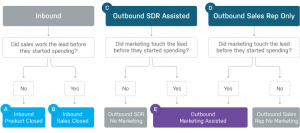Having a website and being able to contact your customers through the internet is an important asset of any company. During the internet’s fledgling days, there was no telling how important and indispensible an online presence would become. Today, websites are responsible for reaching a whole new clientele, and they account for a growing percentage of sales for new businesses. Yet, while products and services are all important for a company’s well-being, much more thought should be given to where business owners choose to host their websites. In the business of web hosting, one size does not fit all. Choosing the wrong web host can mean a loss in revenue, a negative effect on your SEO rankings, and not to mention the possibility of security and malware attacks. While these negative consequences could cost your business its customers, it also means that those customers could become victims of website security breaches. The internet is an increasingly competitive and dangerous space. More than ever, businesses need to evaluate their needs before choosing web hosting. These seven tips can help businesses decide what works for them for them.
Know Your Hosting Needs –Businessmen who want to buy web hosting must first know what their needs are. Many low-cost web hosting companies cut costs by limiting the technologies available to you. Before deciding on a web host, business owners should ask themselves a series of questions such as “Do I need special software such as PHP?”, “What are my current traffic needs?” and “Do you I need Windows applications?” Asking these questions will help you to identify your needs and choose the web hosting company that will work best for you.

Pick a web host that has an Excellent Uptime Record – Becoming a truly global company means being available for customers no matter their geographic locations and their preferred shopping times. The internet does not sleep and neither should your website. Your chosen hosting provider should do everything in their power to ensure maximum uptime. Most web hosting companies will boast of a 99.9% uptime. However, in practice, their uptime may fall short of what was advertised. Be sure to seek out independent reviews of their reliability in order to aid your decision.
Opt for Good Support – Choose a web host that has a good reputation for both technical support and customer service. Many web-hosting services will insist that they offer 24/7 service. However, in actuality, their support may be much less than advertised. When your website goes down at 2 am on a Sunday morning, you will want someone around who can fix it. You will also want to talk to a real person who is able to understand your needs. Downtime means you are potentially missing out on sales, and if customer support is unreachable, this can be exacerbated by feelings of frustration.
Don’t Let Cost Be The Final Decider – Too many times business owners let the cost of web hosting services play to large a part in their decision making. While a business’s overhead cost is a major factor in its bottom line, unfortunately, with web hosting, you get what you pay for. While it’s good to think about what your business can afford, it’s also good to consider what you cannot afford. Business owners cannot afford frequent downtimes, and they cannot afford security breaches. Low-cost web hosting is likely to be shared web hosting. This will work fine if your business does not attract very many visitors. However, if your business draws a large amount of traffic then you may want to look into dedicated or managed hosting. While it will cost more than other hosting services, it will reward you with reliability in the long run. In addition to this, you will enjoy superior technical support as well.
Ability to Scale – As your business grows, your website will need to be able to handle the increased traffic. As such, your web hosting needs will change as well. You will want a web hosting company that can grow with your business; one that will be able to handle your growing traffic. You do not want to change web hosting companies just as your business is taking off since the process can cost you valuable time and effort. You need to ask yourself if the company you choose is up to the challenge. For example, if you start off with just a WordPress blog on a shared hosting plan, can you graduate to a dedicated hosting arrangement for more processing power, disk storage, and improved security features? Additionally, you are able to upgrade your service, how easy is the process? A web hosting company does not only supply your current needs but is able to provide for you needs in the future.
Reputation – Nothing says more about a web host than its customers’ willingness to vouch for it. Therefore before settling on a web hosting company, every business owner should look at reviews from current and past customers. You will want to hear about their experiences directly from them. Social media and internet forums are great resources from this. However, don’t just settle for one or two reviews. Additionally, be careful about seeking out reviews that confirm already-held biases. Apart from reading reviews, conduct your background checks. Find out how long the company has been in business as well their history of downtimes and maintenance schedules.
Site backups – Business owners need to consider what would happen if their sites were to crash. Whether the cause is a server hard disk failure, or if it’s the work of a hacker, how do you get back to where you were? You should always ask potential web hosts for their backup policy. Also, find out how regular these backups are, how easy they are to perform and whether it can be performed by the site administrators.
However, following a few rules and asking a few important questions can aid you in the long run. Luckily, once the decision is made, a well-chosen web-host will reward you with fewer headaches and better peace of mind.
Digital & Social Articles on Business 2 Community(32)





